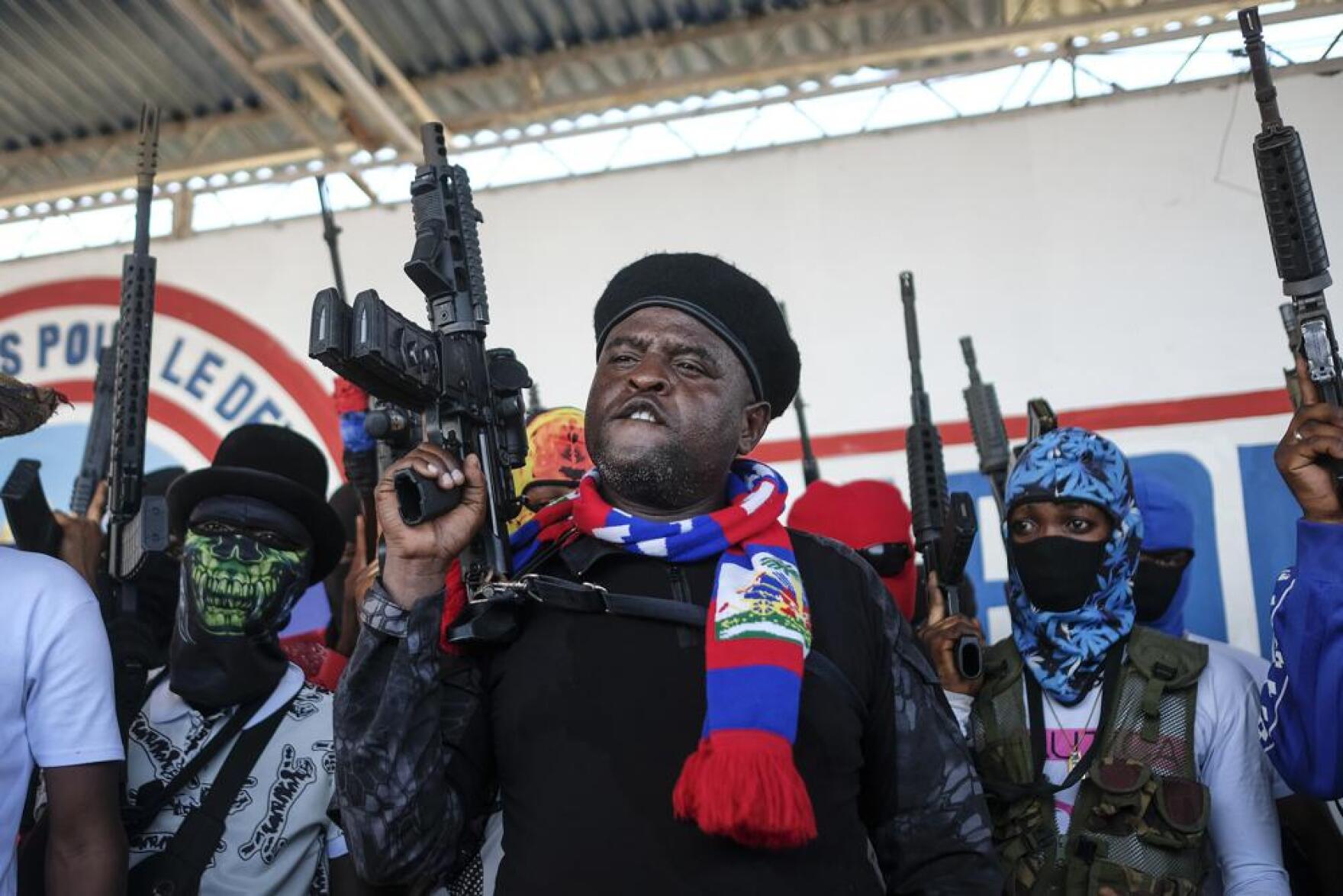Investigations
How Haiti Gangs Make Millions From Insecurity
Gang leader Jimmy “Barbecue” Cherizier, who heads the G9 alliance, recently claimed political elites pay gangs to maintain instability.

Criminal organizations exploit weak state capacity to build lucrative shadow economy worth billions
PORT-AU-PRINCE, Haiti – In the sprawling slums of Haiti’s capital, gang checkpoints have replaced government authority, turning insecurity into a multi-billion dollar criminal enterprise that threatens international stabilization efforts.
Armed groups controlling an estimated 60 percent of Port-au-Prince have transformed the Caribbean nation’s collapse into profit, generating revenues through kidnapping, extortion, drug trafficking and territorial control that rival legitimate businesses.
Extortion Economy
Finance Minister Alfred Metellus estimates gangs extract between $60-70 million annually from cargo container extortion alone, with additional millions collected from fuel truck drivers forced to pay “passage fees” at illegal roadblocks.
“Trucks transporting food products or fuel from the capital to the southern departments were forced to pay passage fees of up to $22,600 for each journey,” according to a UN report covering January-March 2024.
The systematic taxation extends beyond transportation. Gang-controlled territories operate like shadow governments, with criminal organizations collecting regular payments from businesses, markets and residents in exchange for protection or simply the right to operate.
Kidnapping Industry
The UN documented 1,494 kidnappings in 2024, generating an estimated $25 million in ransom payments annually.
Mass abductions, including the August 2025 kidnapping of Irish missionary Gena Heraty and eight others from an orphanage, demonstrate the industrial scale of the practice.
Victims range from wealthy businesspeople to ordinary citizens, with gangs targeting diaspora networks and international organizations capable of paying substantial ransoms.
Drug Transit Hub
Haiti’s strategic position has made it a crucial transit point for South American cocaine destined for US markets.
FBI Director Kash Patel recently told the US Senate that Haiti serves as a “major hub for cocaine trafficking from Venezuela,” with gangs providing armed protection and storage for international trafficking networks.
In July 2025, Haitian National Police seized over one tonne of cocaine off Tortuga Island, highlighting the scale of narcotics flowing through gang-controlled territory.
Weapons and Corruption
Gang leader Jimmy “Barbecue” Cherizier, who heads the G9 alliance, recently claimed political elites pay gangs to maintain instability.
“We enjoy good friendship with a section of top leaders here in Haiti and they have paid us well so that we can destabilize the country,” he alleged.
The assertion, while unverified, reflects how weak state capacity and alleged corruption create conditions for gang operations to flourish with minimal law enforcement interference.
Kenya leads a UN-backed Multinational Security Support mission deployed in June 2024 to restore order.
However, three Kenyan officers have died, and violence has actually increased, with 5,601 people killed in 2024 – 1,000 more than the previous year.
“Security deployments can suppress violence temporarily, but unless people see hope, gangs will always have fresh recruits and new revenue streams,” said Pius Masai, a UN security advisor.
The mission faces the challenge of dismantling not just armed groups but an entire criminal economy that has become entrenched in Haiti’s social fabric since President Jovenel Moïse’s 2021 assassination.
Over one million Haitians – nearly one in ten – have been internally displaced by the violence, creating a humanitarian crisis that further weakens state capacity and provides gangs additional opportunities for exploitation.
Success in Haiti will require more than military intervention, analysts say, demanding parallel efforts to rebuild institutions, tackle corruption, and provide economic alternatives in communities where gangs currently offer the only path to income and influence.
Kenya Insights allows guest blogging, if you want to be published on Kenya’s most authoritative and accurate blog, have an expose, news TIPS, story angles, human interest stories, drop us an email on [email protected] or via Telegram
-

 Grapevine2 weeks ago
Grapevine2 weeks agoAlleged Male Lover Claims His Life Is in Danger, Leaks Screenshots and Private Videos Linking SportPesa CEO Ronald Karauri
-

 Lifestyle2 weeks ago
Lifestyle2 weeks agoThe General’s Fall: From Barracks To Bankruptcy As Illness Ravages Karangi’s Memory And Empire
-

 Grapevine7 days ago
Grapevine7 days agoRussian Man’s Secret Sex Recordings Ignite Fury as Questions Mount Over Consent and Easy Pick-Ups in Nairobi
-

 Investigations4 days ago
Investigations4 days agoMulti-Million Dollar Fraud: Three Kenyans Face US Extradition in Massive Cybercrime Conspiracy
-

 Economy3 days ago
Economy3 days agoIran Demands Arrest, Prosecution Of Kenya’s Cup of Joe Director Director Over Sh2.6 Billion Tea Fraud
-

 Investigations2 weeks ago
Investigations2 weeks agoEpstein’s Girlfriend Ghislaine Maxwell Frequently Visited Kenya As Files Reveal Local Secret Links With The Underage Sex Trafficking Ring
-

 News2 weeks ago
News2 weeks agoState Agency Exposes Five Top Names Linked To Poor Building Approvals In Nairobi, Recommends Dismissal After City Hall Probe
-

 News2 days ago
News2 days agoTHE FIRM IN THE DOCK: How Kaplan and Stratton Became the Most Scrutinised Law Firm in Kenya
















